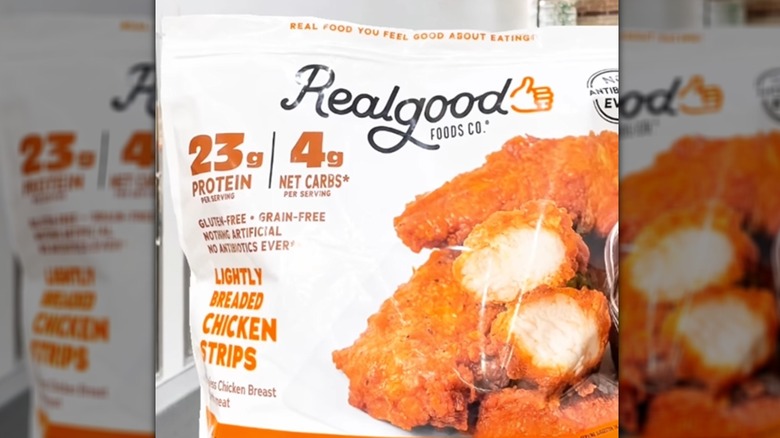The Frozen Costco Chicken Strips That Are Dividing Shoppers
Healthy eating for one person might not fit the requirements of another person's idea of what's healthy. With the global organic food market rising to $121 billion dollars in 2020, more people are considering what and how their food is grown and produced (via Statista). And even if you pass through the organic food section, more companies are jumping on the bandwagon, deeming their products as "healthy."
While you can find many great healthy foods at grocery stores, it's important to make sure you carefully read the labels. Nowadays, it's easy for advertisers and marketers to claim a food item as "healthier" than a competitor's, using verbose language to make you believe you're getting something health-conscious when usually, that's the not case. Recently, Costco announced a new three-pound bag of chicken strips that caused quite the ruckus among customers.
Healthier chicken strips full of inflammatory oils
Claiming to be a "healthy find" due to its double amount of protein, 50% fewer carbs than regular chicken strips, and chickpea flour breading, Real Good Food's chicken strip product launch at Costco has stirred a lot of controversy on Instagram among its customers due to other ingredients found on the back label. "Fried in grapeseed oil, safflower oil, sunflower oil, and canola oil. Nooooo thank you. It's sad that something like this is described as 'healthy' for our kids," said one user. "Sunflower oil and canola oil in the ingredients make these unhealthy tho," said another Instagram user. "Ingredients matter.....these are not healthy' if they have horrible oils," commented another concerned customer.
With the increased consumption of vegetable oil within the last century, scientists claim that many of these oils can contribute to chronic inflammation, ultimately leading to heart disease, cancer, diabetes, and arthritis (via Healthline). Because of this, Costco's claim of these chicken strips as "healthy" isn't sitting right with a lot of customers. While the other claims surrounding its protein intake and fewer carbs may be true, there's a lot more that goes into these than one might accidentally turn a blind eye to.

